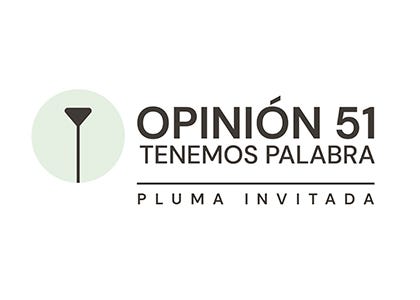Desde hace al menos dos décadas, los organismos internacionales de derechos humanos han expresado al Estado mexicano su preocupación en relación con el grado de militarización que impera en el país y los enfrentamientos del ejército con los grupos del crimen organizado. Pese a ello, el proceso de militarización avanza.
La estrategia de seguridad pública basada en la militarización ha sumido al país en una espiral de violencia que genera un aumento en las violaciones de derechos humanos como la tortura, el uso excesivo de la fuerza, el hostigamiento sexual -en su mayoría contra mujeres-, las ejecuciones arbitrarias, los desplazamientos y desapariciones forzadas, entre otras. Es decir, esta estrategia de seguridad es parte y causa de la profunda crisis de violencia del país, lo que pone en riesgo la vida de las personas.
En contraposición, si bien el aprecio por la Fuerzas Armadas es mayor respecto al resto de las autoridades, de acuerdo con la Encuesta Nacional de Victimización y Percepción sobre Seguridad Pública (ENVIPE) 2022, el nivel de confianza en el Ejército ha ido a la baja. La población que “confía mucho” en esta institución pasó de 45% en 2020 a 43% en 2022. Y son los hombres quienes más confían (50% dijo confiar mucho, mientras que sólo un 37% de las mujeres piensa lo mismo).
Así, el presidente Andrés Manuel ha decidido centralizar la toma de decisiones de la política de seguridad pública a nivel federal en una sola institución: la Guardia Nacional, la cual hoy en día estará bajo el control de la Sedena (Secretaría de la Defensa Nacional). Argumentando que ésta tiene un nivel de aprobación alto y que dicha institución ha tenido una disminución de quejas por presuntas violaciones a derechos. Bajo los ojos del poder ejecutivo, es justificable la generación de una estrategia de seguridad en la que se otorgan constantes funciones civiles a mandos militares, adscritos a la Guardia Nacional -entre ellas: la distribución de vacunas contra el COVID-19, el reparto de libros de texto gratuitos, la construcción de infraestructura como el aeropuerto “Felipe Ángeles”, el traslado de dinero de programas sociales, así como la cooperación de aduanas y puertos- (Observatorio de la Guardia Nacional y Causa en Común, 2022).
Sin embargo, respaldar únicamente estas decisiones por los niveles de confianza, es una acción poco crítica y certera. Entre otras cosas porque, a la fecha, la Guardia Nacional ha registrado 1056 quejas las cuales representan un número mayor a las presentadas a la Sedena desde 2020 -los hechos violatorios con mayor número de quejas fueron prestar indebidamente el servicio público; faltar a la legalidad, honradez, lealtad, imparcialidad y eficacia en el desempeño de las funciones, empleos, cargos o comisiones; y trato cruel, inhumano o degradante-. (Sistema Nacional de Alerta de Violación a los Derechos Humanos CNDH, 2022).
A su vez, en una reflexión colaborativa con diversas organizaciones y colectivos de la sociedad civil que derivó en un reporte, coordinado por EQUIS Justicia para las Mujeres, sobre la vulnerabilidad frente a la militarización hablamos de las consecuencias que trae consigo el asignar mayores funciones a las Fuerzas Armadas y en específico a la Guardia Nacional.
Las Organizaciones de la Sociedad Civil (OSC) participantes coincidimos en que la aceptación general de las Fuerzas Armadas está justificada por la percepción de la inseguridad como uno de los problemas más apremiantes en la sociedad mexicana. Por lo tanto, la construcción en el imaginario social de la inseguridad influye en la adopción de comportamientos que permiten a las Fuerzas Armadas tener más poder y, a su vez, replicar los estereotipos de género del uso de la fuerza a los hombres “fuertes y armados” que tienen estructura, ordenamientos y disciplina para hacerlo, y así legitimar sus actos.
Es decir, si a las personas les preocupa la inseguridad y opinan que las policías son corruptas, entonces concluyen que las Fuerzas Armadas pueden abatir mejor al crimen organizado como el menor de los males. Y aquí radica la importancia de recalcar los efectos que trae consigo la militarización. En este sentido, de manera general apuntamos que:
a) La militarización afecta la seguridad pública y el acceso a la justicia (en su mayoría, cuando las violaciones a DDHH son cometidas por las Fuerzas Armadas, los procesos judiciales son opacos, lo que desincentiva la exposición o denuncia sobre violencias).
b) El personal militar no posee conocimientos ni habilidades para actuar como primeros respondientes en los casos de violencia contra grupos en situaciones de vulnerabilidad, debido a su organización y códigos de actuación como corporaciones reactivas -de combate y aniquilación del enemigo- lo que conlleva detenciones arbitrarias basadas en estereotipos, intrusión en las dinámicas de las comunidades sin una visión de prevención y protección.
c) Debido al fuero militar, prevalece la impunidad respecto a las violencias y las violaciones de derechos humanos cometidas por las Fuerzas Armadas, así como la dificultad para documentarlas.
d) El incremento en presupuesto a las instituciones militares trae consigo una disminución de los presupuestos en materia de atención y prevención a las violencias o hacia políticas públicas que fortalezcan la igualdad de género (para el 2023, se espera un aumento del 60% al presupuesto asignado a la Sedena mientras que para el programa para promover la atención y prevención de la violencia contra las mujeres solo aumentará 5%).
Nuestro desarrollo, bienestar y oportunidades se ven comprometidas en un contexto de despliegue de las Fuerzas Armadas, agrava las particularidades del ciclo de vida, genera condiciones de discriminación y la ausencia de una política pública de seguridad fundamentada en los derechos humanos que impiden el goce de los derechos.
Si bien las Fuerzas Armadas encabezan las instituciones con más confianza por parte de la ciudadanía (ENVIPE 2022) es preciso identificar que la ciudadanía los percibe como el menor de los males y ello no necesariamente responde a que la estrategia de seguridad militarizada asegure una disminución de los índices de violencia en el país, por el contrario, es una solución paliativa que ha demostrado no ser funcional.
Militarizar no es una estrategia de paz, pero sobre todo, no atiende la grave situación de violaciones de derechos humanos que ha sido documentada y que seguirá impactando de forma diferenciada a grupos en situaciones de vulnerabilidad.
*Aranza Gamboa y Mónica Rebollo son integrantes del área de políticas públicas de la organización feminista EQUIS Justicia para las Mujeres (@equisjusticia).
Las opiniones expresadas son responsabilidad de sus autoras y son absolutamente independientes a la postura y línea editorial de Opinión 51.
Más de 150 opiniones a través de 100 columnistas te esperan por menos de un libro al mes. Suscríbete y sé parte de Opinión 51.





Comments ()